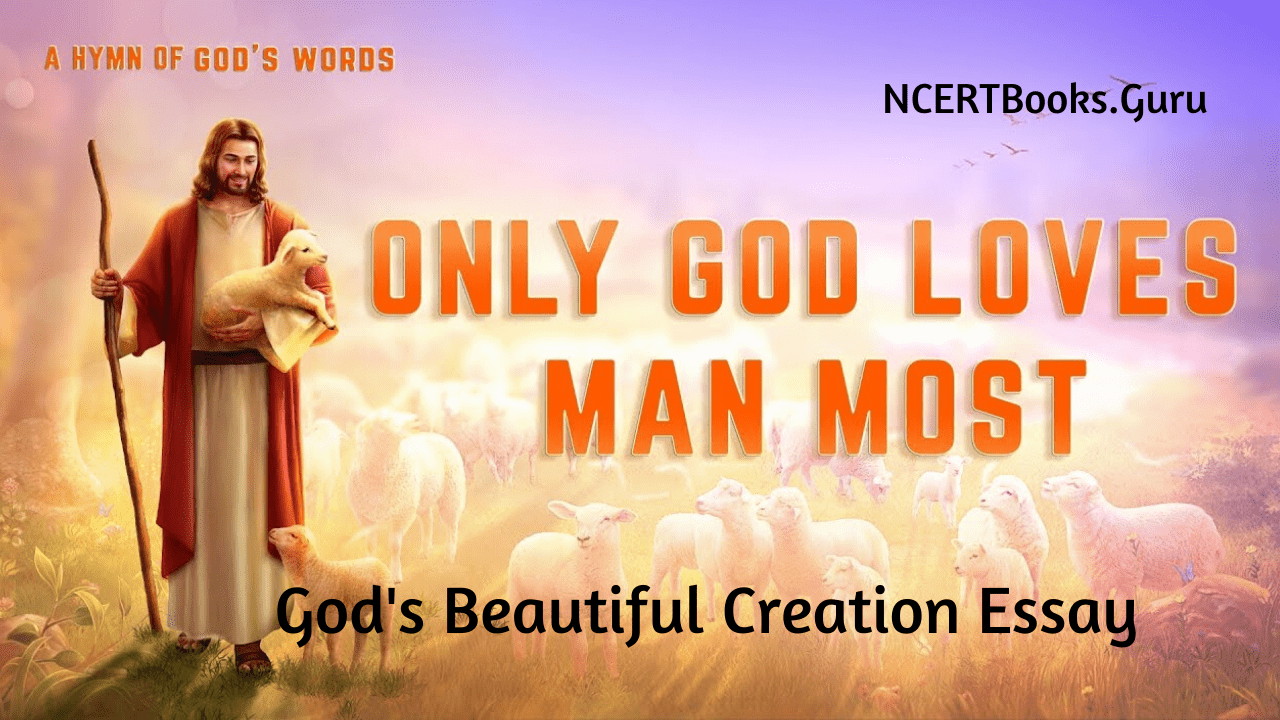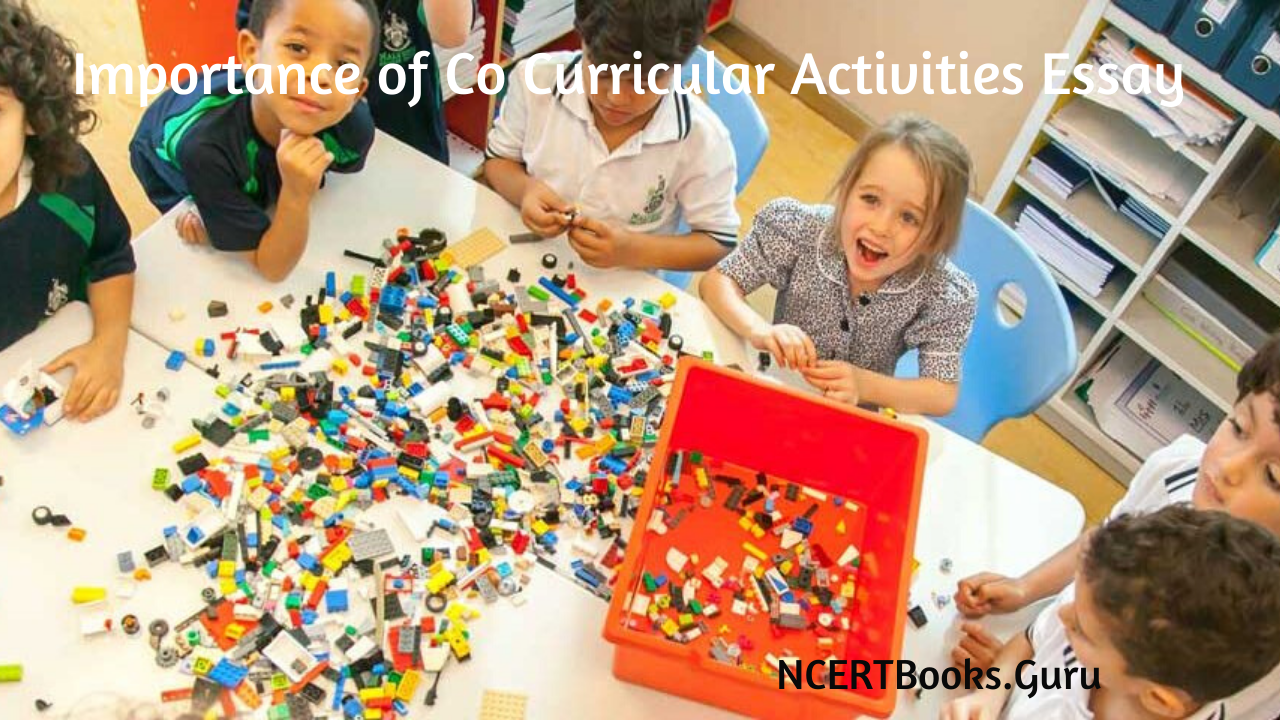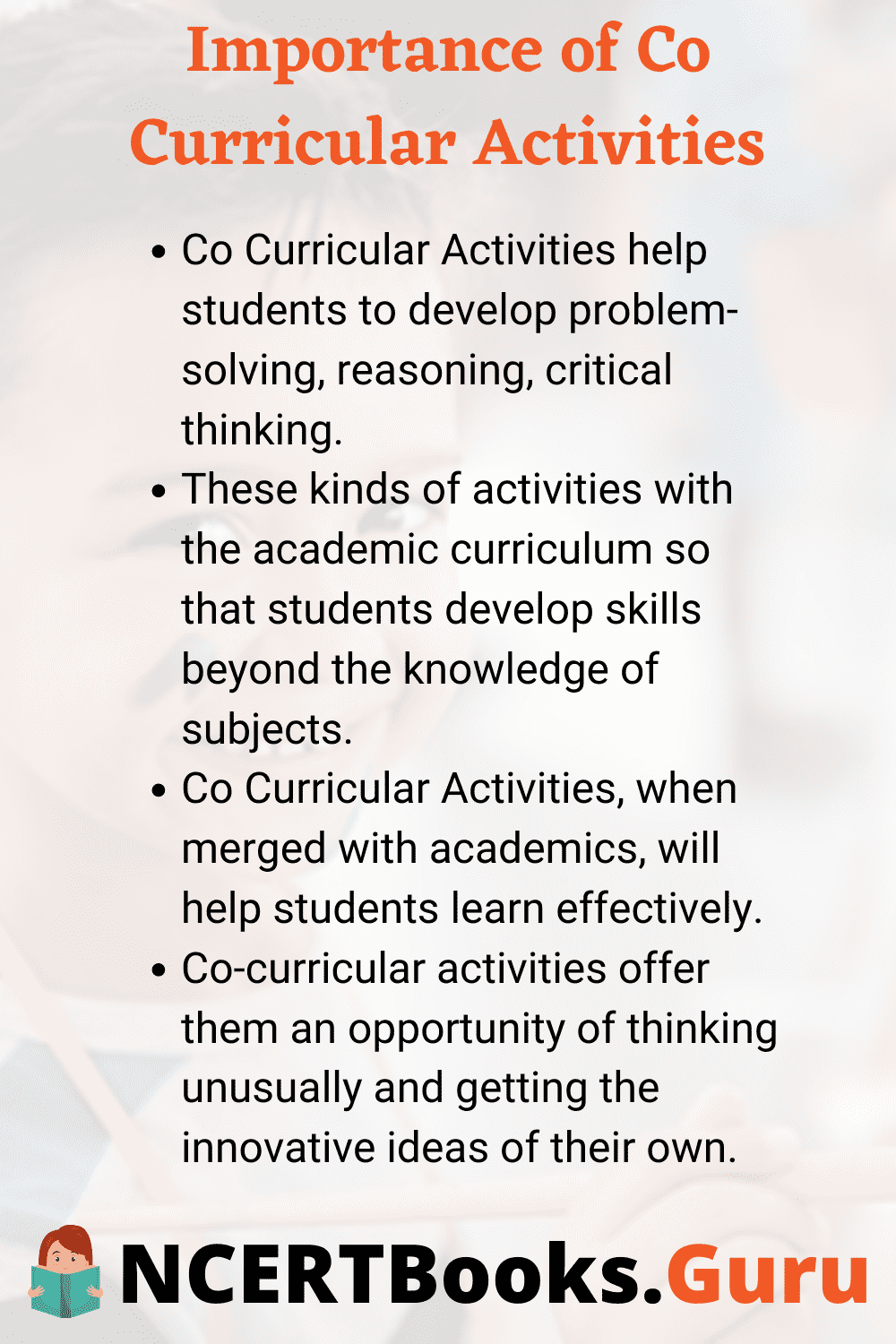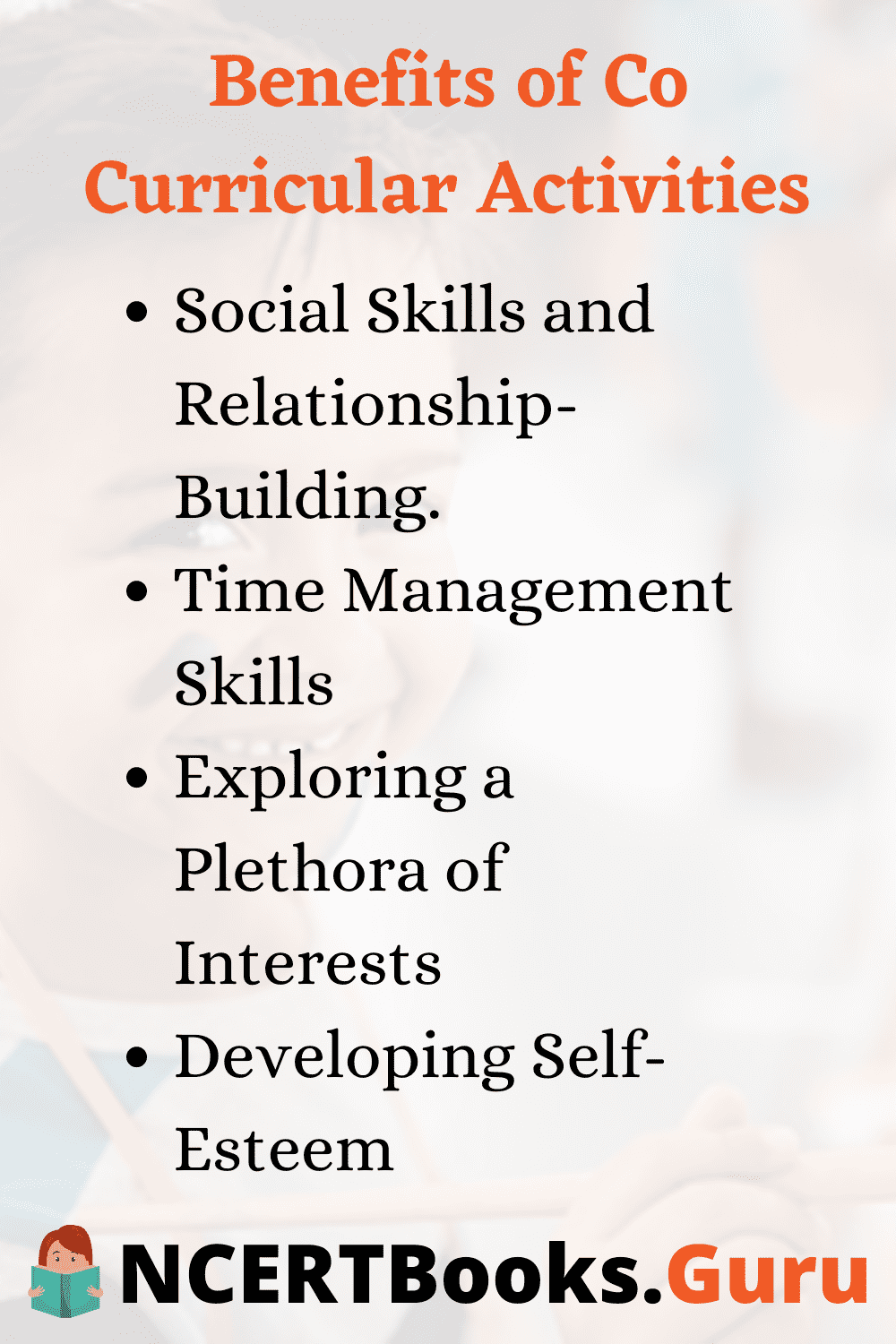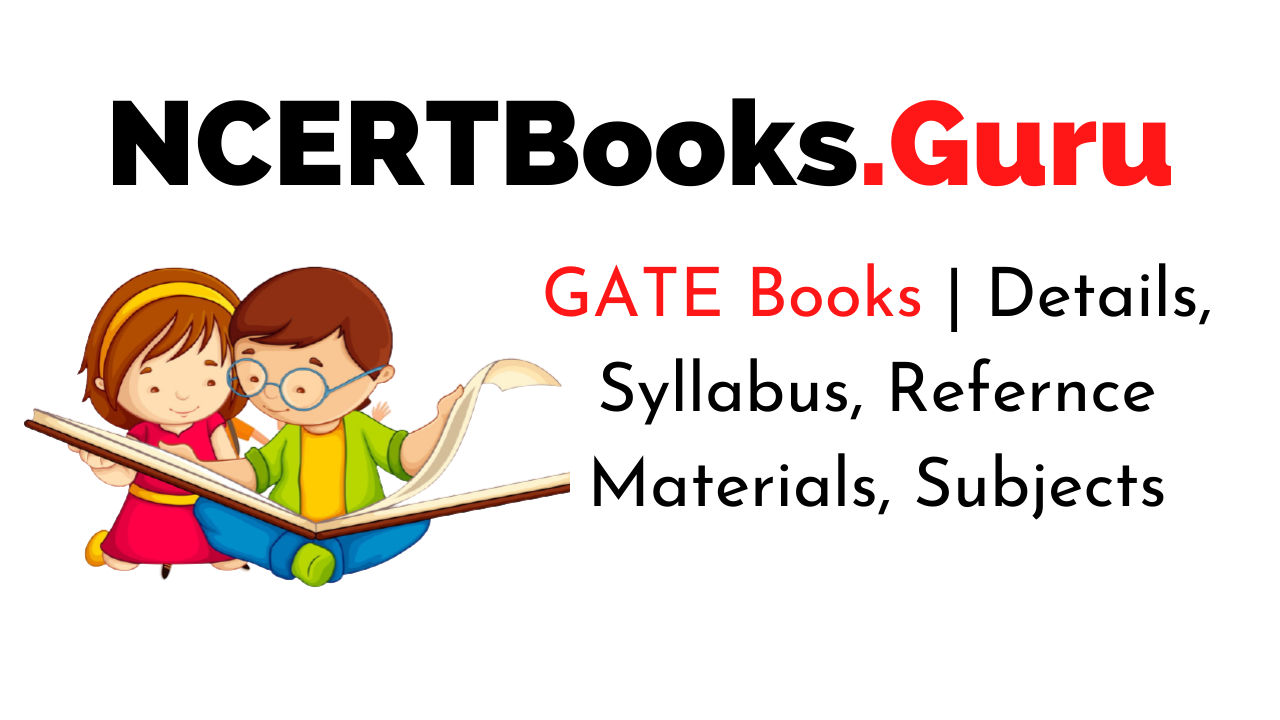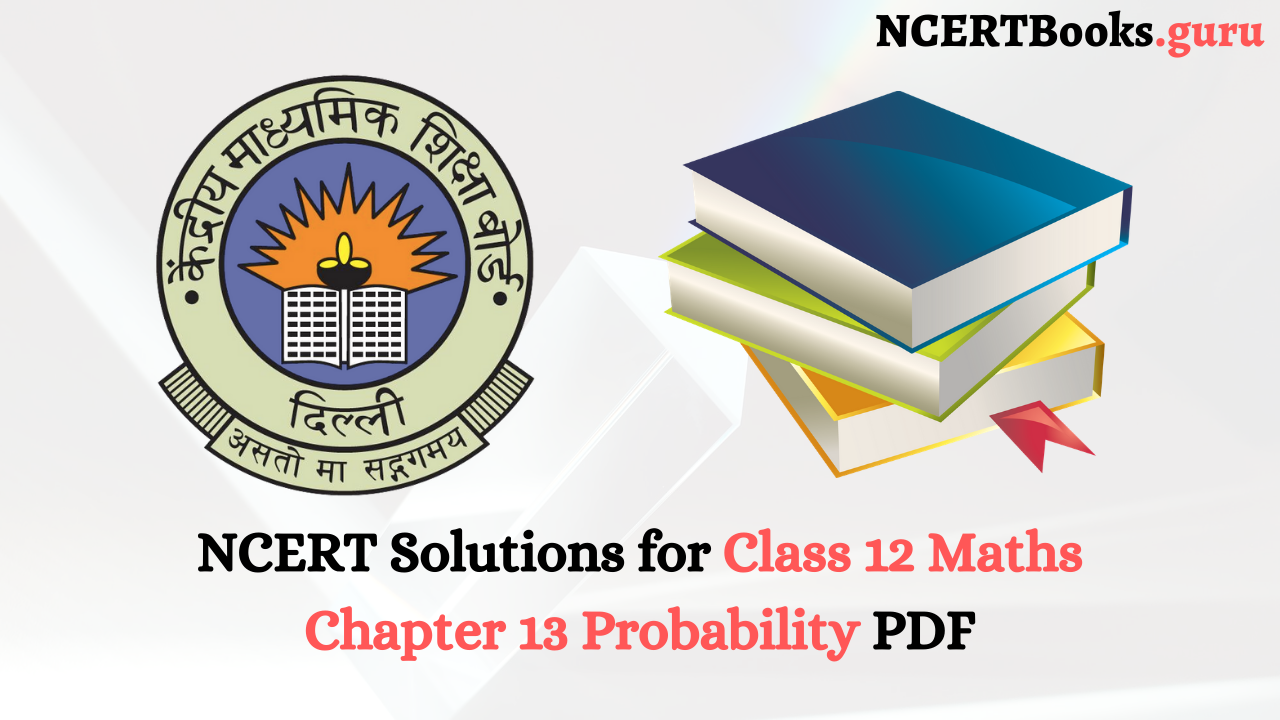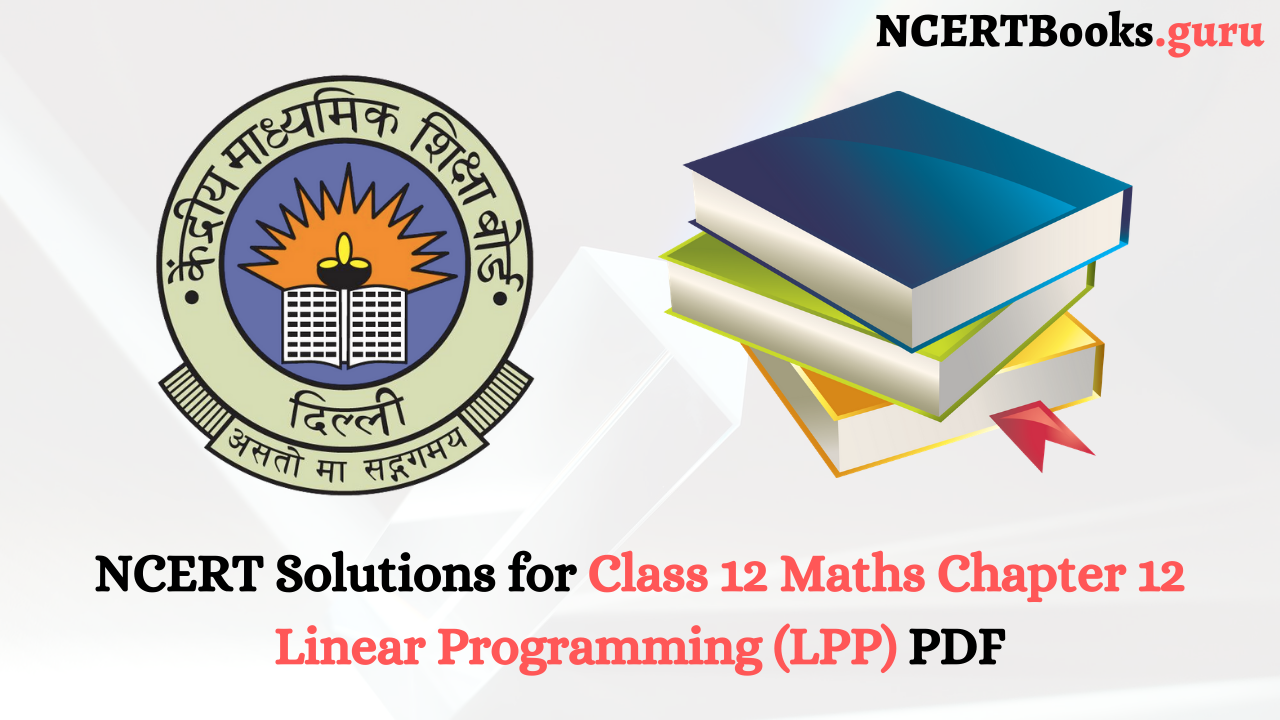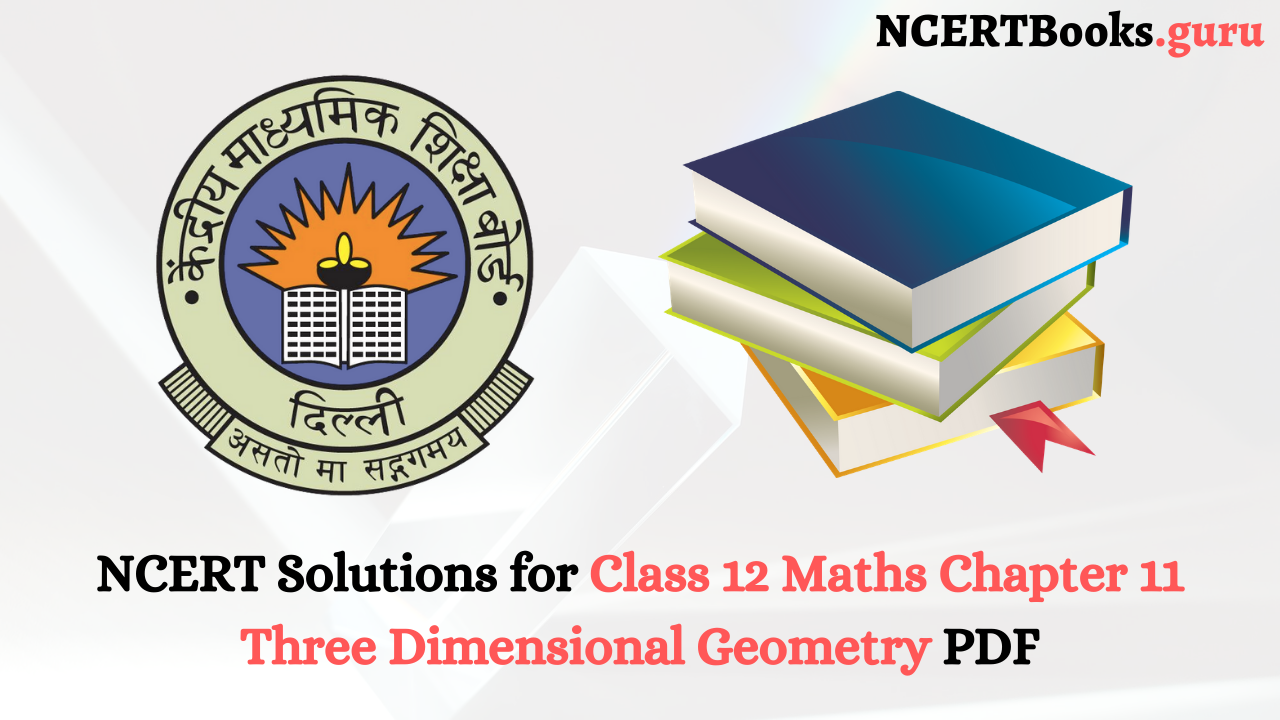GATE Books: Gratitude Aptitude Test in Engineering (GATE) is one of the prestigious entrance examinations for Engineering background students who want to continue higher studies. This examination checks the knowledge of a student at the undergraduate-level in his/her subject. It is conducted by IISc and seven IITs jointly. Final year students or graduates from Engineering, Architecture background, and postgraduates from Science, and Computer Application background can appear in the GATE examination. This is one of the well-known competitive exams in India. So, you must prepare well from the beginning to clear this exam.
In this article, we have made a list of all essential reference books, study materials, and notes that will help you to clear the GATE examination.
GATE Books and Reference Materials
GATE score helps in admission into postgraduate programmes. However, it also helps to secure a job in the Indian public sector in undertaking roles. A good score in GATE can help you to get a scholarship as well. The exam is not very tough, but the competition is high. Only proper preparation can help you to score well in the GATE exam. You must read reference books as well to clear the doubts and prepare better answers. There are a lot of institutions that provide coaching for GATE examination. But you can prepare for it by joining free study groups online. You may read the books properly. If you are unable to clear any concept, you may search in Google for a better explanation. But if you don’t understand from study materials available online, you can join private coachings.
- GATE Syllabus
- GATE Reference Books
- GATE Study Materials and Notes
- GATE Preparation Tips
- Conclusion
GATE Syllabus
The authority has released the syllabus of GATE 2021. The first step to prepare for an examination is to know the syllabus well. If you want to appear for GATE 2021, please go through the syllabus mentioned below.
GATE 2021 Environmental Science & Engineering Syllabus (ES)
| Sections |
Topic Name |
| Section 1 |
Mathematics Foundation |
| Section 2 |
Environmental Chemistry |
| Section 3 |
Environmental Microbiology |
| Section 4 |
Water Resources and Environmental Hydraulics |
| Section 5 |
Water & Wastewater Treatment and Management |
| Section 6 |
Air and Noise Pollution |
| Section 7 |
Solid and Hazardous Waste Management |
| Section 8 |
Global and Regional Environmental Issues |
| Section 9 |
Environmental Management and Sustainable Development |
GATE Reasoning and Comprehensions Syllabus (XH-B1)
| Sections |
Topic Name |
| Section 1 |
Reading Comprehension |
| Section 2 |
Expression |
| Section 3 |
Analytical reasoning |
| Section 4 |
Logical reasoning |
GATE Economics Syllabus (XH-C1)
| Sections |
Topic Name |
| Section 1 |
Microeconomics |
| Section 2 |
Macroeconomics |
| Section 3 |
Statistics, Econometrics and Mathematical Economics |
| Section 4 |
International Economics |
| Section 5 |
Public Economics |
| Section 6 |
Development Economics |
| Section 7 |
Indian Economy |
GATE English Syllabus (XH-C2)
| Sections |
Topic Name |
| Section 1 |
Multi-genre literature in English—poetry, the novel and other forms of fiction including the short story, drama, creative non-fiction, and non-fiction prose—with emphasis on the long 19th and 20th centuries |
| Section 2 |
Literature from India and, extending to some degree, the larger Indian subcontinent, Especially in a comparative context, anglophone and in English translation, literature from India and, extending to some degree, the larger Indian subcontinent |
| Section 3 |
Cultural and critical approaches and intellectual-traditions widely referred to and used in the discipline of English |
| Section 4 |
History of English literature and English literary studies |
| Section 5 |
Research approaches and methods, including interpretive techniques responsive to literary devices, concepts, forms, and genres |
GATE Linguistics Syllabus (XH-C3)
| Sections |
Topic Name |
| Section 1 |
Language and Linguistics |
| Section 2 |
Phonetics and Phonology, Morphology, Syntax, Semantics and Pragmatics |
| Section 3 |
Historical Linguistics |
| Section 4 |
Sociolinguistics |
| Section 5 |
Areal Typology, Universals, Cross-linguistic Features |
| Section 6 |
Methods of analysis |
| Section 7 |
Applied Linguistics |
GATE Philosophy Syllabus (XH-C4)
| Sections |
Topic Name |
| Section 1 |
Indian Philosophy – Orthodox Systems: Heterodox Systems, Sānkhya : Kāṣmira Śaivism, Śaivasiddhānta, Vīra Śaivism, Śāktism and Vaiṣṇavism, Cārvāka, Upaniṣads, Bhagavadgītā, and Dharmaśāstras |
| Section 2 |
Contemporary Indian Philosophy – Vivekananda |
| Section 3 |
Classical and Modern Western Philosophy – Metaphysics, Epistemology, Ethics, Social and Political Philosophy, Logic |
| Section 4 |
Contemporary Western Philosophy |
GATE Psychology Syllabus (XH-C5)
| Sections |
Topic Name |
| Section 1 |
Research Methods and Statistics |
| Section 2 |
Psychometrics: Foundations of Psychological measurement; Basic components |
| Section 3 |
Biological and evolutionary basis of behaviour |
| Section 4 |
Perception, Learning, Memory and Forgetting |
| Section 5 |
Cognition: Thinking, Intelligence and Language |
| Section 6 |
Personality: Theories of personality |
| Section 7 |
Motivation, Emotion and Stress and Coping |
| Section 8 |
Social psychology, Development across the life span, Applications of Psychology |
GATE Sociology Syllabus (XH-C6)
| Sections |
Topic Name |
| Section 1 |
Sociological Theory |
| Section 2 |
Research Methodology and Methods |
| Section 3 |
Sociological Concepts |
| Section 4 |
Agrarian Sociology and Rural Transformation |
| Section 5 |
Family, Marriage and Kinship |
| Section 6 |
Indian Society / Sociology of India |
| Section 7 |
Social Movements |
| Section 8 |
Sociology of Development |
GATE 2021 General Aptitude Syllabus (GA)
| Verbal Ability |
Numerical Ability |
| English Grammar |
Numerical computation |
| Sentence Completion |
Numerical Estimation |
| Verbal Analogies & Word Groups |
Numerical Reasoning |
| Instructions, Critical Reasoning & Verbal Deduction |
Data Interpretation |
GATE 2021 Engineering Mathematics Syllabus
| GATE Paper |
Topics included in Engineering Mathematics |
| Aerospace Engineering (AE) |
Differential Equations, Linear Algebra, and Calculus |
| Agricultural Engineering (AG) |
Linear Algebra, Calculus, Differential Equations, Vector Calculus, Probability, and Statistics, Numerical Methods |
| Biomedical Engineering (BM) |
Linear Algebra, Calculus, Differential Equations, Analysis of complex variables, Probability, and Statistics, Linear Regression and correlation analysis, Numerical Methods |
| Biotechnology (BT) |
Statistics, Numerical Methods, Linear Algebra, Calculus, Differential Equations, and Probability |
| Civil Engineering (CE) |
Linear Algebra, Calculus, Ordinary Differential Equations (ODE), Partial Differential Equations (PDE), Probability and Statistics, Numerical Methods |
| Chemical Engineering (CH) |
Linear Algebra, Calculus, Differential Equations, Probability and Statistics, Numerical Methods, Complex Variables |
| Computer Science and Information Technology (CS) |
Linear Algebra, Calculus, Probability, and Statistics, Discrete Mathematics |
| Electronics and Communication (EC) |
Linear Algebra, Calculus, Differential Equations, Probability and Statistics, Numerical Methods, Vector Analysis, Complex Analysis |
| Electrical Engineering (EE) |
Linear Algebra, Calculus, Differential Equations, Probability and Statistics, Numerical Methods, Complex Variables, Transform Theory |
| Environmental Science and Engineering (ES) |
Linear Algebra, Calculus, Differential Equations, Probability and Statistics |
| Instrumentation Engineering (IN), Mechanical Engineering (ME) |
Linear Algebra, Calculus, Differential Equations, Probability and Statistics, Numerical Methods, Complex Variables |
| Metallurgical Engineering (MT), Mining Engineering (MN) |
Linear Algebra, Calculus, Differential Equations, Vector Calculus, Probability and Statistics, Numerical Methods |
| Petroleum Engineering (PE), Production and Industrial Engineering (PI), Textile Engineering and Fiber Science (TF) |
Linear Algebra, Calculus, Differential Equations, Probability and Statistics, Numerical Methods, Complex Variables |
| Engineering Sciences (XE) |
Linear Algebra, Calculus, Ordinary Differential Equations (ODE), Partial Differential Equations (PDE), Probability and Statistics, Numerical Methods, Vector Calculus, Complex Variables |
GATE 2021 Mechanical Engineering Syllabus (ME)
| Sections |
Topic Name |
| Section 1 |
Engineering mathematics |
| Section 2 |
Applied Mechanics and Design |
| Section 3 |
Fluid Mechanics and Thermal Sciences |
| Section 4 |
Materials, Manufacturing and Industrial Engineering |
GATE 2021 Computer Science Engineering Syllabus (CS)
| Sections |
Topic Name |
| Section 1 |
Engineering Mathematics |
| Section 2 |
Digital Logic |
| Section 3 |
Computer Organization & Architecture |
| Section 4 |
Programming and Data Structures |
| Section 5 |
Algorithms |
| Section 6 |
Theory of Computation |
| Section 7 |
Compiler Design |
| Section 8 |
Operating Systems |
| Section 9 |
Databases |
| Section 10 |
Computer Network |
GATE 2021 Civil Engineering Syllabus (CE)
| Sections |
Topic Name |
| Section 1 |
Engineering Mathematics |
| Section 2 |
Structural Engineering |
| Section 3 |
Water Resources Engineering |
| Section 4 |
Transportation Engineering |
| Section 5 |
Geotechnical Engineering |
| Section 6 |
Environmental Engineering |
| Section 7 |
Geomatics Engineering |
GATE 2021 Electrical Engineering Syllabus (EE)
| Sections |
Topic Name |
| Section 1 |
Engineering Mathematics |
| Section 2 |
Electric Circuits |
| Section 3 |
Signals and Systems |
| Section 4 |
Power Systems |
| Section 5 |
Electrical and Electronic Measurements |
| Section 6 |
Power Electronics |
| Section 7 |
Electromagnetic Fields |
| Section 8 |
Electrical Machines |
| Section 9 |
Control Systems |
| Section 10 |
Analog and Digital Electronics |
GATE 2021 Electronics and Communication Engineering Syllabus (EC)
| Sections |
Topic Name |
| Section 1 |
Engineering Mathematics |
| Section 2 |
Networks, Signals and Systems |
| Section 3 |
Analog Circuits |
| Section 4 |
Control Systems |
| Section 5 |
Electromagnetics |
| Section 6 |
Electronic Devices |
| Section 7 |
Digital Circuits |
| Section 8 |
Communications |
GATE 2021 Instrumentation Engineering Syllabus (IN)
| Sections |
Topic Name |
| Section 1 |
Engineering Mathematics |
| Section 2 |
Electrical Circuits |
| Section 3 |
Control Systems |
| Section 4 |
Measurements |
| Section 5 |
Sensors and Industrial Instrumentation |
| Section 6 |
Signals and Systems |
| Section 7 |
Analog Electronics |
| Section 8 |
Digital Electronics |
| Section 9 |
Communication and Optical Instrumentation |
GATE 2021 Textile Engineering and Fibre Science Syllabus (TF)
| Sections |
Topic Name |
| Section 1 |
Textile Fibers |
| Section 2 |
Fabric manufacture, Structure, and Properties |
| Section 3 |
Chemical processing |
| Section 4 |
Yarn manufacture, Yarn structure, and Properties |
| Section 5 |
Textile Testing |
GATE 2021 Statistics Syllabus (ST)
| Sections |
Topic Name |
| Section 1 |
Calculus |
| Section 2 |
Probability |
| Section 3 |
Inference |
| Section 4 |
Multivariate Analysis |
| Section 5 |
Linear Algebra |
| Section 6 |
Stochastic Processes |
| Section 7 |
Regression Analysis |
| Section 8 |
Design of Experiments |
GATE 2021 Architecture and Planning Syllabus (AR)
| Sections |
Topics Name |
| Section 1 |
City Planning |
| Section 2 |
Housing |
| Section 3 |
Computer-Aided Design |
| Section 4 |
Landscape Design |
| Section 5 |
Visual and Urban Design |
| Section 6 |
Development of Contemporary Architecture |
GATE Reference Books
You must read reference books to score well in the GATE exam. Students often become confused to choose the right book. We have made a list of the best reference books for each subject. You can choose anyone or two of them as per your choice. You should choose books that explain the concepts clearly and in easy language. Always buy the latest edition to avoid further problems.
| GATE Preparation Books for Mechanical Engineering |
Author |
| Mechanical Vibration |
GK Grover |
| Design Of Machine Elements |
VB Bhandari |
| Engineering Mechanics |
SS Bhavikatti |
| Fluid Mechanics |
RK Bansal |
| Heat & Mass Transfer |
PK Nag |
| Engineering Thermodynamics |
Cengel & Boles |
| Internal Combustion Engine |
V Ganesan |
| Refrigeration & Air Conditioning |
CP Arora |
| Material Science |
UC Jindal |
| Production Engineering |
Amitabh Ghosh |
| Industrial Engineering |
OP Khanna |
| GATE Preparation Books for Computer Science |
Author |
| Algorithms |
Cormen |
| Operating System |
Galvin |
| Theory of Computation |
Ullman |
| Computer Networks |
Tanenbaum |
| Computer Organisation |
Carl Hamacher |
| Database System |
Korth |
| Compiler Design |
Aho & Ull Man |
| Digital Logic |
Morris Mano |
| Software Engineering |
Pressman |
| GATE Preparation Books for Electrical Engineering |
Author |
| Network Analysis |
Val Valken Burg |
| Engineering Circuit Analysis |
Hayt & Kemmerly |
| Graph Theory |
Narsingh Deo |
| Circuit Theory |
Chakravarthy |
| Control System |
Nagrath Gopal |
| Electrical machines |
PS Bimbhra |
| Power Electronics |
UA Bakshi |
| Power Systems |
Nagrath Kothari |
| Signals & Systems |
Oppenheim Wisky |
| GATE Preparation Books for EC |
Author |
| Electronic Devices Circuits |
Millman and Halkias (Black Pad) |
| Microelectronics |
Millman and Grabel |
| Integrated Electronics |
Millman and Halkias |
| Electronic Circuits |
Schilling and Belove |
| Switching and Finite Automatic Theory |
Kohavi |
| Digital Logic and Computer Design |
Mano |
| Digital Electronics |
Malvino and Leach |
| Digital Systems, Principles and Applications |
Tocci |
| Microprocessor and its Applications |
Goankar |
| Microprocessors |
B Ram |
| Automatic Control Systems |
BC Kuo |
| Control Systems |
Nagarath and Gopal |
| Modern Control Systems |
Ogata |
| OP Amps and Linear Integrated Circuits |
Gayakwad |
| Electrical and Electronic Measurements and Instrumentation |
AK Sawhney |
| DC Machines Measurements and Measuring Instruments |
GB Bharadhwajan |
| Electrical Machines |
PS Bimhra |
| Electrical Technology |
Hughes |
| The performance and Design of AC Machines |
MG Say |
| Electrical Engg. (Problems and Solutions) |
Natesan |
| Electrical Machines |
Mukherjee & Chakravarthy |
| Elements of Power System Analysis |
William D Stevenson |
| Modern Power System Analysis |
Nagrath and Kothari |
| Electrical Power Systems |
Wadhwa |
| Power Systems |
VK Mehta (For basics of PS) |
| GATE Preparation Books for Civil Engineering |
Author |
| Gate 2020: Civil Engineering Solved Papers |
Made Easy |
| Gate Guide Civil Engg. 2020 |
Gkp |
| Gate Tutor 2020 Civil Engineering |
Prasant Dixit |
| Gate 2020: Civil Engineering Solved Papers: Twenty Years |
Hitesh Aggarwal |
| Gate 2020 Civil Engineering |
Vani Institute |
| Civil Engineering Gate 2020 30 Years Solution |
IES Master |
| Gate Guide Civil Engineering 2020 |
Hitesh Aggarwal |
| Gate Guide Civil Engg. 2020 |
GKP |
| Gate Paper Civil Engineering 2020 (Solved Papers 2000-2016) |
GKP |
GATE Petroleum Engineering Books
- Khanna’s Objective Questions in Petroleum Engineering – By Vikas Mahto, Khanna Book Publishing Company Private Limited
- Introduction to Petroleum Engineering – By John R. Fanchi, Wiley-Blackwell
- HPCL Hindustan Petroleum Corporation Limited Boiler Technician Mechanical Engineering – By G.K Publications PVT.LTD
- OP Gupta & Khanna Publishers’ Elements of Petroleum Refinery Engineering
- Applied Petroleum Reservoir Engineering – By Ronald E. Terry, Prentice Hall
GATE Aerospace Engineering Books
- Fundamentals of Aerodynamics – By John D Anderson, Tata McGraw – Hill Education
- Aerodynamics for Engineering Students – By E. L. Houghton, P. W. Carpenter, Butterworth Heineman
- Fundamentals of Aerodynamics – By John D. Anderson, Tata McGraw – Hill Education(2010)
- Aerodynamics for Engineers – By John J. Bertin, Pearson
GATE Chemical Engineering Books
- Introduction To Fluid Mechanics (English) 7th Edition – By Yunus A. Cengel, John M. Cimbala
- Heat Transfer – By Binay.K.Dutta
- Mass Transport Phenomena – By Christie J. Geankoplis
- Donald R. Coughanowr & Steven E. LeBlanc’s Process Systems Analysis and Control
- Chemical Technology – By Dryden’s Outlines of Chemical Technology by Gopala Rao M. and Marshall S
GATE Biotechnology Engineering Books
- GATE Guide Biotechnology – By G.K.P; Publisher-
- Biotechnology GATE – By B.M. Agarwal, Akanksha Singhal, Vidhika Goel; Publisher-Arihant Publications
- Biotechnology for CSIR- NET, SET, GATE, JNU, AIIMS, JAM – By Vinita Thakur; Publisher- Himalaya Publication House
GATE Instrumentation Engineering Books
- GATE 2020: Instrumentation Engineering Previous Solved Papers – By GKP
- Instrumentation Engineering GATE 2020 – By Arihant Experts
- GATE 2020 – Guide – Instrumentation Engineering – By GKP
GATE Agriculture Engineering Books
- Bello R S, LAP Lambert Academic Publishing – Agricultural Machinery Management
- James Slight’s The Book of Farm Implements and Machines
- Harris Pearson Smith’s Farm Machinery And Equipment
- T P & A M Michael Ojha’s Principal Of Agricultural Engg.Vol -I
GATE Metallurgical Engineering Books
- GKP’s GATE 2020 – Metallurgical Engineering – Guide
- Amritansh Frank’s Metallurgical Engineering Solved Papers GATE 2020
- GKP’s GATE 2020 – Solved Papers – Metallurgical Engineering
| Engineering Branch |
GATE Reference Books 2021 |
| GATE Mining Engineering |
Elements of Mining Technology – By DESHMUKH |
| GATE Statistics Engineering |
Miller and Freund’s Probability and Statistics For Engineers – By Pearson |
| GATE Textile Engineering And Fibre Science |
Textile Processing and Properties – By Vigo TL Vigo Vigo |
| GATE Production and Industrial Engineering |
GATE 2020 – Guide – Production and Industrial Engineering – By GKP |
| GATE Geology & Geophysics |
Engineering and General Geology – By Parbin Singh |
| GATE Ecology & Evolution |
Karl Sigmund’s Games of Life: Explorations in Ecology, Evolution, and Behavior – Dover Publications |
| GATE Architecture and Planning |
Architect’s Guidebook For Competitive Exams – By Ar. Swapnil Vidhate |
| GATE Physics Syllabus |
Vijay Kumar’s Chapterwise Solved Papers Physics GATE 2020 |
| GATE Chemistry Syllabus |
Sanjay Saxena & Preeti Gupta’s Chapterwise Solved Papers Chemistry GATE 2020 |
| GATE Mathematics Syllabus |
Suraj Singh’s Chapterwise Solved Papers Mathematics GATE – 2020 – Arihant Publication |
| GATE Biomedical Engineering |
Fundamentals of Biomedical Engineering – By G.S Sawhney |
GATE Study Materials
Study materials are an important part of preparation. You can download some study materials for the GATE examination by clicking on the official website.
GATE Preparation Tips
A lot of Indian students appear in GATE with the hope to get admission to some of the prestigious universities for their higher studies. Unfortunately, many of them fail to clear the examination. We have made a list of tips that will help you to clear the GATE exam.
- Understand the concepts
- Practice regularly and revise frequently
- Prepare study notes
- Be patient and confident
- Know your strength and weakness
- Learn to do time management
- Stay up-to-date with the instructions provided by GATE authority
- Eat healthy food and sleep well
- Practice previous years’ questions
- Smile and stay positive
Conclusion on GATE Books
Your practice, self-confidence, and positivity will help you to clear the GATE examination. Hopefully, the information provided above will help you to start your preparation for the GATE examination.
FAQ’s on GATE Books
Question 1.
Who can appear for the GATE exam?
Answer:
Final year students or graduates from Engineering, Architecture background, and postgraduates from Science, and Computer Application background can appear in the GATE examination.
Question 2.
Which organisation conducts GATE?
Answer:
The GATE exam is conducted by IISc and seven IITs jointly.
Question 3.
When shall I start preparing for GATE?
Answer:
You can start preparing for GATE from the second year onwards. It is better not to start from the first year as you get to know the subjects well in the first year.
Question 4.
Can I choose two subjects in HATE?
Answer:
Yes, you can choose two subjects in GATE. However, you need to pay for a separate application fee for the second paper.
Question 5.
How much CGPA is required to appear in GATE?
Answer:
There is no minimum CGPA required to appear in GATE. However, most of the IITs ask for more than 6 CGPA for admission in their master’s programmes.
Question 6.
Can we appear for GATE with backlogs?
Answer:
Yes, you can appear for GATE with backlogs if you are confident enough to clear them. The GATE score is valid for three years.
Question 7.
Is there any age limit for the GATE examination?
Answer:
No, there is no age limit for the GATE examination.


